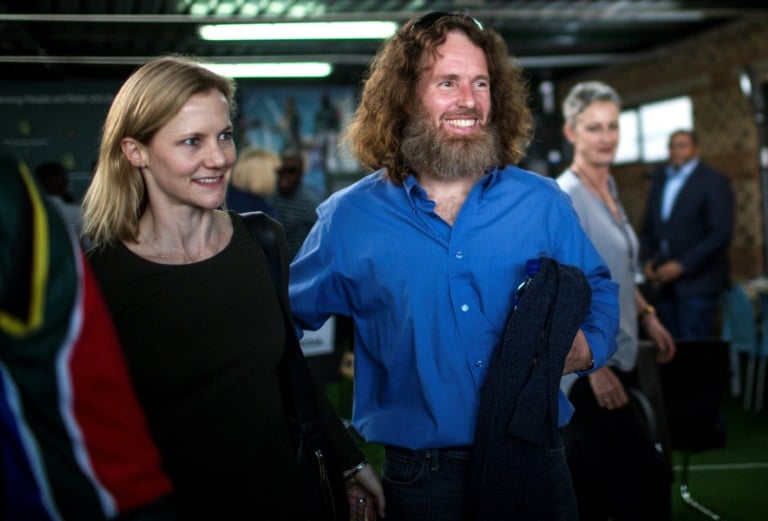JUST IN: CIT robbers killed in shootout with police in Laudium
Speaking just 10 days after being released, he said he had converted to Islam in the Sahara desert, and added that he was determined to be positive after his ordeal.
McGown, 42, sat next to his wife Catherine as he spoke for an hour to reporters, saying he had no idea if a ransom was paid, and telling how he was sometimes held in handcuffs and chains at night with two other hostages.
“I did my best to see the best in a bad situation,” McGown said, looking in good health and smiling regularly despite recently suffering from severe fever, headaches and meningitis.
“I didn’t want to come out an angry person and be a bigger burden on my family,” he said.
“Sometimes you are miserable and you want to fight everyone (but) I did not want to become a mess. I want to come home a better person.”
He paid tribute to his mother who died in May, saying she was “an amazing lady and I can imagine the difficulties she went through.”
“I don’t want to harbour resentment. I will forgive, I will move on,” he said.
McGown built a simple hut of grass and sticks to survive the cold desert nights when he often had only one blanket, and said that he feared for his life three times in the first three months after he was captured in 2011 while on holiday in Mali.
McGown was kidnapped at a hotel in the historic trading city of Timbuktu in Mali’s north along with Swede Johan Gustafsson and Dutchman Sjaak Rijke, both of whom were subsequently released.
– Ransom denials –
The South African government has insisted that no ransom was paid to secure McGown’s release, which was completed on July 29, but some reports have suggested $4.2 million was handed over.
Imtiaz Sooliman, head of the Gift of the Givers charity which helped to free McGown, said the kidnappers at first demanded 10 million euros ($11.7 million) for each of the three hostages.
Sooliman said he was not involved in any ransom payment and dismissed reports of the $4.2 million payment.
Gustafsson, 42, who was released in June, said Thursday he hoped that his government was telling the truth when it said its policy was not to pay ransoms.
“Personally, I think it’s wrong. It puts other people in danger… They can use that money in their war machinery,” said Gustafsson, speaking to journalists. It was also his first press conference since being released.

The South African government has insisted that no ransom was paid to free Stephen McGown, held hostage by Al-Qaeda in Mali for nearly six years, despite some media reports saying .2 million was handed over.
McGown, with a long beard and hair, said he had been better treated after converting to Islam, and was given better clothing and food.
“Before the desert, I was a Christian. I entered (Islam) of my own accord,” he said.
“I see many good things in Islam. It requires a very good character, a very strict character.”
He added that his captors thought that US President Donald Trump would draw more Muslims to fight against the West.
McGown admitted to being “in the dark” over world events in the last six years as the hostages had only had a radio for a short time and no books in English.
McGown, Gustafsson and Rijke were abducted by Al-Qaeda’s North African affiliate Al-Qaeda in the Islamic Maghreb (AQIM) in November 2011.
Rijke was freed in April 2015 by French special forces.
AQIM was one of several jihadist groups that took control of Mali’s north in 2012 before being ousted by a French-led military operation launched in January 2013.
Download our app